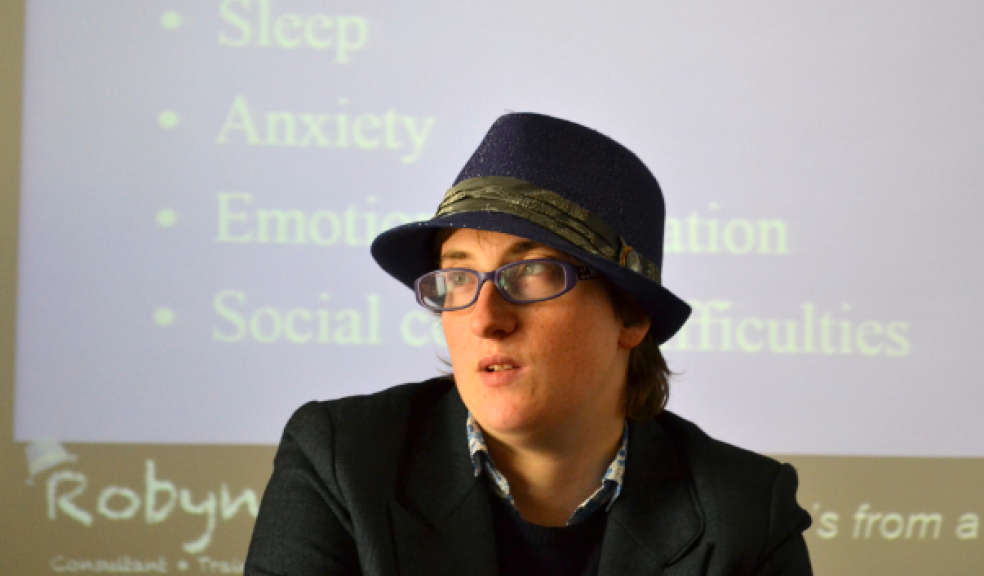
Companies must do more to support employees with Autism Exeter seminar is told
International author and speaker Robyn Steward told an audience in Exeter that companies would do better in business if they did more to encourage and support a diverse workforce that included more people living with Autism and Asperger’s Syndrome.
The ambassador for the National Autistic Society spoke about her experience of having a diagnosis of Asperger’s syndrome at the ‘Autism as an Asset in the Workplace’ event, run by award-winning Exeter business Brain-In-Hand at the University of Exeter’s Innovation Centre.
Addressing an audience which included employers, employees with autism and Asperger’s Syndrome, academics and healthcare professionals, she stressed how companies need to do more if they are to benefit from a diverse employee-base. After the presentation, Robyn led an ‘Autism and Asperger’s Awareness’ workshop.
The author, who recently hosted her own programme ‘Knowing Me Knowing Autism’ on BBC Radio 4, said: “Everyone’s skills are different but people living with Autism are often very innovative, have specialist knowledge, show exceptional attention to detail, a clear focus and very good memory. There are some companies doing good things, but there’s much more that could be done to unlock people’s potential. Technologies like the Brain-in-Hand system do just that, supporting people to manage their daily life, which is why I’m delighted to be in Exeter for this event.”
Robyn (pictured) spoke about her experience of being an adult on the autistic spectrum, and how innovative businesses are supporting employees with assistive technology like Brain-in-Hand to reduce stress and anxiety in the workplace and enable people to be the best they can.
Of about 500,000 people in the UK with autism, 200,000 adults have Asperger’s Syndrome or High Functioning Autism. But despite the fact that many can and want to work, only 15% of adults on the autistic spectrum are in full-time paid employment.
Chris Catt, who runs The Life Coach Station, in Newton Abbot, said: "As someone with a sensory impairment it was really interesting to hear about the issues of non-verbal communication in the workplace. The support provided by companies is patchy, and it's often smaller firms that are better. They see the benefits and can take actiare ore quickly."
Geoff Rose, of Exeter-based social enterpise Pluss, said: "It was a fantastic event. A lot of companies are fearful and think employing people with Autism will impact badly. But the more they learn, then they start to see the benefits. It's good for their business to have such specialists and They often see that it's good for the whole workforce, and helps bring them closer together."
Based at Exeter University’s Innovation Centre, Brain-in-Hand has developed smartphone and website technology, together with a mentoring service, which enables people with Asperger’s and high-functioning autism to organise their lives, plan how to deal with stressful situations and ask for the help they need in real time when they need it most.
The company recently won the Innovation of the Year category in the Exeter Express & Echo newspaper’s prestigious Business Awards.
Laura Newton, Implementation Manager for Brain-in-Hand, said at least half of the attendees are on the autistic spectrum.
She added: “There was a brilliant response to what Robyn had to say and fantastic discussion about innovative approaches to supporting people in the workplace. We all need to work together – companies, employees and professionals to reap the benefits for individuals and for business.”




















